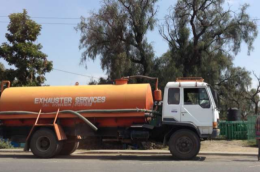If you were the Mayor of an African city, what would persuade you to spend more money on sanitation services for low-income communities? The Urban Institute has partnered with Water & Sanitation for the Urban Poor (WSUP) and Johns Hopkins University to better understand who makes decisions around local sanitation financing, what influences those decisions, and how to advocate for more financing to the urban poor.
This two-year initiative focuses on Maputo in Mozambique, Nakuru in Kenya, and the municipality of Ga West in Greater Accra, Ghana. Our research is producing new data and insights to guide WSUP in identifying effective strategies and tools to trigger increased funding for pro-poor sanitation from city governments in sub-Saharan Africa.
Clients
Water & Sanitation for the Urban Poor (WSUP)
Period of Performance
January 2014 - July 2016

